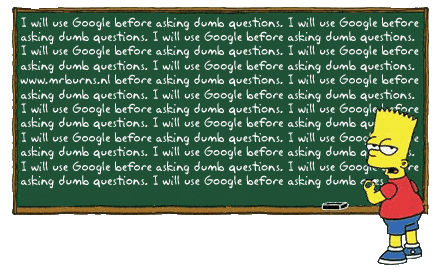As the world tags Gen Y with labels such as ‘entitled’, ‘narcissistic’ and ‘slackers’, Vatsala Chhibber attempts to introduce Gen Y to themselves by finding some answers for the ‘new lost generation’
Every generation, to some extent, believes they were dealt and unfair hand. Our grandparents grew up in a time of political and economic turmoil and had to work extremely hard to make a living (in many cases to feed the many mouths they so graciously gave birth to). Our parents, the Baby Boomers, were caught between the rigidity of their upbringing and the freshly discovered liberation of their times. And then there’s us, Generation Y, also known as the Millennials. Many believe the Millienials have no right to be complaining. After all, they’ve been handed everything they need on a silver platter. Or more realistically, in an iPad Mini.
 Who is Gen Y?
Who is Gen Y?
Generation Y are children of the Baby Boomers (who were born between 1946 and 1964). Many other names have been used to describe Gen Y such as Millennials, Net Generation and Echo Boomers. They were born between 1981 and 1994, however different sources show a slight variation in the years.
Why is Gen Y called the Peter Pan Generation?
Most twenty-somethings maintain a safe distance from responsibilities that their parents undertook without much of a fuss. The generation preceding ours stuck to their jobs, got married, brought up children and managed to buy a house, even if that meant accepting the monotony that accompanies the cautious life of someone with bank loans to clear. However, it seems like they’ve done such a fine job raising their children that their children are now refusing to grow up.
According to a research carried out last year by Confused.com, 32% of Britons between the ages of 25 and 39 were still living with their parents, which is almost as questionable in the West as pre-marital sex is in India. The respondents listed the following as reasons why the refused to leave their Neverland: they enjoyed the luxury of being served home-cooked meals, they did not know how to or alternatively did not want to do their own laundry and were generally unprepared to move out. Generation Y also has other Peter Pan traits: delaying marriage and children or steering clear of these life progressions entirely, renting houses instead of buying property to avoid the added burden of mortgages and experimenting with careers instead of settling for a ‘stable job’. reasons why the refused to leave their Neverland: they enjoyed the luxury of being served home-cooked meals, they did not know how to or alternatively did not want to do their own laundry and were generally unprepared to move out. Generation Y also has other Peter Pan traits: delaying marriage and children or steering clear of these life progressions entirely, renting houses instead of buying property to avoid the added burden of mortgages and experimenting with careers instead of settling for a ‘stable job’.
Why is Gen Y unhappy?
A recent explanation of Gen Y’s unhappiness by an international news website went viral on social networking sites last month. The article attributed this unhappiness to the disparity between Gen Y’s unrealistic expectations and their reality as well as the superiority of the lives they see flaunted on their Facebook and Twitter timelines over the lives they imagined for themselves. However, this analysis has also met with criticism for over-simplifying issues and focusing primarily on the career front.
While this is one question that even Google might be ill-equipped to answer, one cause of Gen Y’s dissatisfaction could be just that – unanswered questions. No one was entirely prepared for the extent to which the internet would change the world. Gen Y, despite being a witness and participant in this change that made answers more accessible to them, is still probably more uncertain about the future than anyone before them. The future of existing careers and industries, the fluctuating life spans of social and political issues, the transient nature of celebrities, internet slang and Apple upgrades: these are only a few uncertainties faced by Gen Y. We have been thrust into a digital age where possibilities are endless and information is boundless. But no one has had to cope with this pace before us, no one knows how. And neither do we.
 Is Gen Y full of slackers?
Is Gen Y full of slackers?
Gen Y is used to being addressed with adjectives such as ‘lazy’, ‘unproductive’, and ‘slackers’, but can you really blame this generation for not working harder while they being pampered by the comforting arms of technology? Can you blame the Millennials for not struggling for years to find a suitable platform for their talent when they have YouTube, or not travelling across the city to run their errands when they can do all of that online while streaming music and beating their friends at Ruzzle?
Also, the Baby Boomers have no idea how much effort it takes to fight constant battles against productivityassassins like Breaking Bad and Candy Crush Saga.
 How is FOMO affecting Gen Y? And what the hell is FOMO?
How is FOMO affecting Gen Y? And what the hell is FOMO?
If you check in on Foursquare the moment you enter a movie hall, check your Facebook timeline even when you’re on a date and post a picture on Intsagram before you take a bite of your delicious-looking meal, you can safely be diagnosed with FOMO (Fear of Missing Out).
The way FOMO affects Gen Y is that it causes constant dependence on social media and hence constant comparisons. Imagine being down with the flu on a Saturday night and watching pictures of your geeky college junior holidaying in Greece (even he lucked out!) on Facebook. That’s how FOMO gradually eats away your happiness; you are left with that uneasy feeling that something better is happening somewhere else, which is further validated by the exaggerated display of lives on social networking sites.
 Is Gen Y stupid?
Is Gen Y stupid?
These are some of the videos that went viral in the recent past:
* A music video that investigates the noises made by a fox
* Miley Cyrus’ dexterous movement of her derriere
* A bizarre Mallika Sherawat video While this could suffice as a suitable answer to the question, here are some other videos that went viral in the recent past:
* A satire on the attitude towards rape in India
* Malala Yousafzai’s incredible responses on Jon Stewart’s talk show* A talk by an enterprising man who made sanitary napkins affordable for women in rural India
It would be more accurate to say that Gen Y is like a web browser. They have multiple tabs at any given point of time and it would be unfair to judge them on the basis of just one (even if it involves grown men floating in fox costumes). However, due to reduced attention spans, Gen Y remains close to the surface with little knowledge about a lot of things rather than a lot of information about fewer things.
 How is Gen Y at work?
How is Gen Y at work?
It looks like Gen Y has watched their parents at work and decided exactly how they don’t want their jobs to be. They want better employee benefits, they want flexibility, they want somewhere between high and unrealistic levels of job satisfaction and if they don’t get what they want, they know exactly where to find the nearest exit. And that’s what they’ve been doing. They are quick to job-hop from one organisation to another and use quality of work as a measure of loyalty over years of service.
Employers have also been struggling to find remedies to keeping the job hopping rate of the Millennials in check. What this generation seems to want in the workplace is an addition of fun into work, less rigidity in policies and immediate feedback from their employers (acknowledgement, encouragement and motivation).
THE GEN Y PERSONALITY
Gen Y is born with a feeling of entitlement. The things that our parents and grandparents strived for, we don’t need to repeat that.
This generation is turning increasingly narcissistic and is also referred to as the ‘ME’ generation.
Gen Y is ambitious and doesn’t like waiting. This is the instant coffee and instant gratification generation.
Attention spans are dangerously low. 140 characters on Twitter and 6 seconds on Vine is proof.
If Gen Y sound like spoilt, ungrateful brats, know that they also have a heart. According to Millennial Impact Report, 63% of Americans between the ages of 20 to 35 volunteered with a non-profit organisation while a greater percentage (73%) donated to non-profit orgnaisations.
Volume 3 Issue 5






























